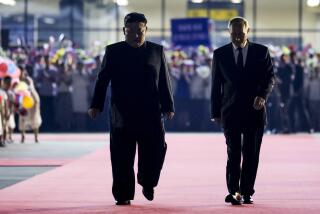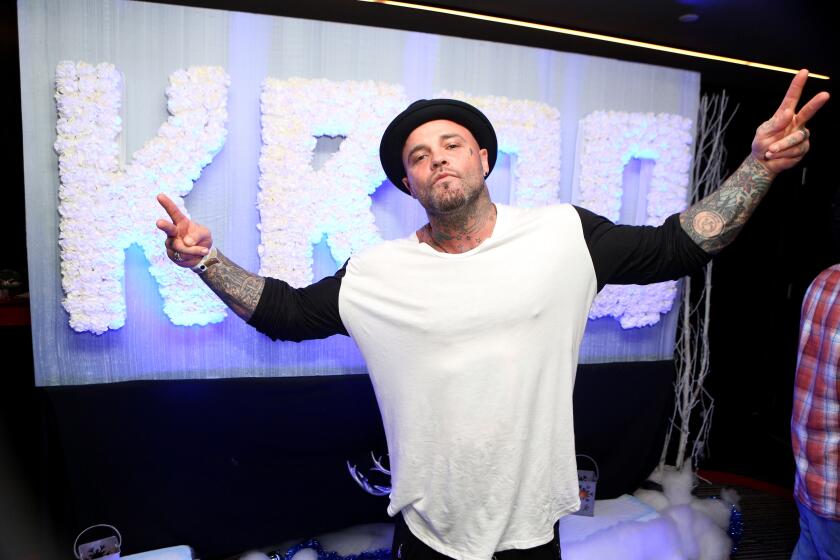Lee Hu-rak dies at 85; former South Korean spy chief
Former South Korean spy chief Lee Hu-rak, who brokered the signing of a historic 1972 peace document with North Korea after a secret trip to Pyongyang, died Saturday. He was 85.
Lee, who had been hospitalized since early May, died of old age and a brain tumor, said Park Yu-kyoung, a spokeswoman for Kyung Hee University East-West Neo Medical Center in Seoul.
Lee, a retired army major general, was a close associate of former President Park Chung-hee, who ruled South Korea with an iron fist for 18 years after a coup in 1961.
While serving as Park’s top intelligence officer, Lee traveled to Pyongyang in 1972, met then-leader Kim Il Sung -- the father of current leader Kim Jong Il -- and helped broker a joint statement in which the two Koreas agreed to work toward peacefully reunifying their divided peninsula.
Lee’s trip was made at the height of Cold War rivalry between the Koreas, and he reportedly carried cyanide to kill himself in case negotiations failed and he was taken hostage.
The July 4 joint communique was hailed as the first major accord between the Koreas on unification since the Korean War ended with a fragile truce in 1953. However, it was thrown into limbo a year later when Pyongyang cut off ties with Seoul, criticizing it for having agents kidnap a South Korean opposition leader in Japan.
Lee allegedly ordered the abduction of Kim Dae-jung, who eventually won the South Korean presidency in the late 1990s, to help cement Park’s rule. Kim forgave Lee and others involved in the 1973 kidnapping as part of his efforts to promote national reconciliation after becoming president in 1998.
The two Koreas signed a similar peace agreement when Kim Dae-jung met Kim Jong Il in a landmark summit in Pyongyang in 2000. Kim Dae-jung won a Nobel Peace Prize for his efforts to reconcile with North Korea.
Lee also served as a national legislator, but was forced to quit politics after Park was assassinated by his intelligence chief, Kim Jae-kyu, during a drinking party in 1979. Park’s successor, Chun Doo-hwan, an army general who seized power through a coup later that year, banned Lee from engaging in politics for several years, citing his alleged corruption.
Lee served as head of the Korea Central Intelligence Agency, a predecessor of the National Intelligence Service, from 1970 to 1973 after working as Park’s top spokesman and chief of staff.
He is survived by three sons and a daughter, hospital spokeswoman Park said.
More to Read
Start your day right
Sign up for Essential California for the L.A. Times biggest news, features and recommendations in your inbox six days a week.
You may occasionally receive promotional content from the Los Angeles Times.






